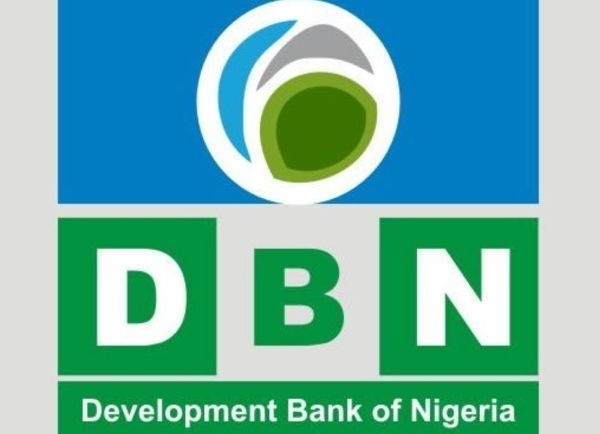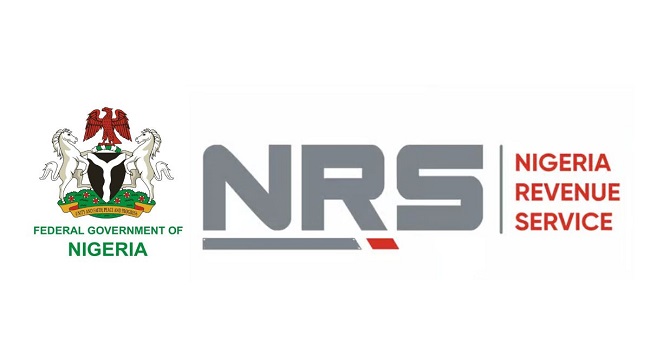E-Financial
DBN Urges MSMEs to Reinvent Business Model for Sustainability

In the light of prevalent economic realities of COVID-19 on businesses across the globe, Development Bank of Nigeria Plc (DBN) has advised Micro Small and Medium Enterprises in the country to reinvent their current business models for sustainability during the pandemic to enable them leverage growth opportunities for their businesses in the post COVID-19 era.

This was the takeaway from the panelists’ discussion at the DBN Webinar session which took place on Saturday May 9th, with the theme; “Alternative Financing Options for Sustainable Growth Post COVID-19 Lockdown”.
The Webinar series is aimed at providing capacity building and advisory services for MSMEs through digital platforms to ensure they are empowered to remain in business through this unprecedented period.
Panelists on the session include: Immediate Past President and Chief Executive Officer of Africa Finance Corporation and presently CEO & Partner, South Bridge Group, Mr. Andrew Alli; CEO of Emerging Africa Capital, Mrs. Toyin Sanni; Head SME, FCMB, Mr. George Ogbonnaya; and MD/CEO, Urban Shelter, Hajiya Sa’adiya Aliyu Aminu. The session was moderated by Chief Economist, Development Bank of Nigeria, Prof. Joseph Nnanna.
While dissecting the current implications of the pandemic on the Nigerian economy, the panelists pointed out that MSMEs are the hardest hit by the crisis, as they have limited access to capital and now have to depend on few customer base.
They however, stressed that this phase shall pass and only SMEs with innovative thinking and clear vision will be able to take advantage of the new normal.
“If you are an SME, the framework should be to survive the crisis period, have as much liquidity as you can and stem expenditure. You must stabilize the business by stabilizing your cost and reconfiguring your operations.
“For instance, a five-star hotel in Lagos has outsourced their laundry and restaurant. You can now order takeaway and pickup of your laundry. The crisis will end, and we will return to a period of growth.
“A lot of things will likely change because of this pandemic. So, you also need to prepare for that era. You have to be innovative, have a clear vision, be ahead of the curve to take advantage of the new normal,” said Andrew Alli.
On alternative sources of funding for MSMEs, George Ogbonnaya stated that investors will be frugal in the post COVID-19 era and will only be attracted to businesses that align purpose with strategic direction. He listed alternative sources of funding to include: Crowdfunding, Venture lending, Data driven lending platforms and Risk-Sharing Guarantees.
On her part, Toyin Sanni admonished small business owners to ‘COVID-Proof’ their business, as quality and branded digital presence will stand as distinguishing factors in the present and post COVID-19 era.
“Quality and how you distinguish your brand from competitors will be very important. So, while saving as much as you can during this period, you should also invest in your brand and digitize your business.
I would like to use the term ‘COVID-Proof’ for your business. Redesign your business such that you are able to do an end-to-end i.e. client acquisition, provision of services, and monitoring and evaluation should involve digital models,” she said.
As an advisory, Sa’adiya Aliyu Aminu said being the major drivers, MSMEs will be crucial to reviving the Nigerian economy just like the sector did after the 2015 recession. She called on the Federal Government to reaffirm the made in Nigeria policy to promote local production and patronage and curb capital flight after the pandemic.
At the end of the webinar, it was adjudged by participants as one of the best in recent times as it touched and proffered solutions to most of the critical challenges facing MSMEs. More so, now in the COVID-19 era.
The Development Bank of Nigeria is a development finance institution, established by the Federal Government in collaboration with global development partners to address the major financing challenges facing Micro, Small and Medium Scale Enterprises (MSMEs) in Nigeria.
DBN carries out this function by providing financial institutions, predominantly Deposit-Money Banks, Microfinance Banks and other financial institutions with funding facilities designed to meet the needs of MSMEs.
E-Financial
SEC Revokes Registration of Kensington Agro Trading Limited

Securities and Exchange Commission (SEC) has revoked the registration of Kensington Agro Trading Limited as a capital market operator with immediate effect.

In a public notice issued by the Commission, the regulator announced that Kensington Agro Trading Limited’s registration as a Commodity Broker/Dealer and Collateral Manager has been withdrawn, effectively stripping the company of its authority to operate within Nigeria’s capital market.
According to the notice, the revocation was carried out pursuant to the powers vested in the Commission under Section 61(6) of the Investments and Securities Act, 2025, as well as Rule 34(1) of the SEC Rules and Regulations 2013, as amended.
The SEC stated that the decision takes immediate effect and urged all stakeholders to take note of the development.
“Accordingly, commodity exchanges, the investing public, commodity traders, and all capital market stakeholders are advised to discontinue capital market-related dealings with the company,” the Commission said.
The directive means that Kensington Agro Trading Limited is no longer authorised to engage in any capital market activities under the regulatory oversight of the SEC. Market participants have been cautioned to avoid entering into transactions or maintaining business relationships with the firm in its former capacity as a registered operator.
While the notice did not specify the reasons for the revocation, such regulatory actions are typically taken in line with the Commission’s mandate to ensure compliance with extant laws, protect investors, and maintain market integrity.
The SEC, headquartered in Abuja, reiterated its commitment to upholding transparency, investor protection, and strict adherence to regulatory standards in Nigeria’s capital market.
The Commission’s action underscores its continued enforcement drive aimed at sanitizing the market and ensuring that only duly registered and compliant operators are permitted to function within the ecosystem.
Stakeholders and members of the public are encouraged to verify the registration status of capital market operators through official SEC channels before engaging in investment-related transactions.
E-Financial
NRS Targets N40trillion in Tax, Royalty Revenue in 2026

Nigerians’ commitment to paying taxes has produced historic results. In 2025, voluntary compliance propelled the Nigeria Revenue Service (NRS) to collect a record ₦28.3 trillion, exceeding its target of ₦25.2 trillion and setting the stage for an even more ambitious 2026.

Dr. Zacch Adedeji, the Executive Chairman of NRS, while hailing the development recorded in 2025, announced that the service is targeting ₦40.7 trillion in tax and royalty collections for 2026, a 44% increase over last year.
The projection reflects reforms consolidating petroleum and mineral royalties under the NRS, streamlining a process previously handled by over 60 federal agencies, including the Nigerian Upstream Petroleum Regulatory Commission and the Nigeria Customs Service.
“With legislative support, we are confident of achieving this,” Dr. Adedeji said at a stakeholders’ roundtable organized by the House of Representatives Committee on Appropriations in Abuja.
The reforms, anchored in the Nigeria Revenue Service Establishment Act, 2025, signed by President Bola Tinubu, formalized the NRS and launched the most comprehensive tax overhaul in decades. By consolidating fragmented revenue collection, the NRS has strengthened efficiency, reduced compliance burdens, and expanded the tax base, particularly in non-oil sectors.
Finance Minister Mr. Wale Edun emphasized that the reforms aim to reduce reliance on Ways and Means financing and unsustainable subsidy arrangements funded by the Nigerian National Petroleum Company Limited.
Meanwhile, Chairman of the House Committee on Appropriations, Rep. Abubakar Bichi, during the stakeholders’ roundtable organized by the House of Representatives Committee on Appropriations in Abuja, assured that legislative oversight will ensure credibility, transparency, and accountability in revenue collection and enforcement.
The NRS’s new mandate signals more consistent enforcement, reduced regulatory overlap, and closer scrutiny of non-oil sectors and mineral operators. For investors, the reforms indicate a centralized revenue administration and a broader, more reliable tax base, potentially reducing macroeconomic volatility if targets are met.
Dr. Adedeji, speaking at the Nigeria Deposit Insurance Corporation (NDIC) Annual Strategic Stakeholders Retreat, emphasized that Nigeria’s journey toward a one-trillion-dollar economy depends heavily on trust.
“Strong bank capitalization and effective enforcement give confidence to the system. When people know their funds are safe, whether one naira or billions, they are more willing to save, invest, and participate in nation-building,” he said.
The NRS has also strengthened collaboration with key stakeholders, including a courtesy visit from KPMG executives, who commended the leadership and timely implementation of new tax laws, pledging continued professional engagement in support of national economic growth.
In another strategic engagement, Dr. Adedeji and Minister of State for Finance, Dr. Doris Uzoka-Anite, met with Central Bank of Nigeria Governor, Olayemi Cardoso, to align fiscal and monetary policies, further promoting sustainable national development.
With strong momentum from 2025 and a clear vision for 2026, the NRS aims not only to boost domestic revenue but also to strengthen public trust, enhance compliance, and drive national development. As Dr. Adedeji emphasized, “Your compliance strengthens our economy and drives national development.”
Nigeria’s taxpayers can take pride in their role in this historic achievement, and in shaping the country’s economic future.
E-Financial
Nigeria’s Net Reserves Surge 50% to $34.8bn in 2025 – CBN Governor

Nigeria’s net foreign exchange reserves surged to $34.80 billion by end-2025, Central Bank Governor Olayemi Cardoso disclosed, marking a 50.58 percent rise of $11.69 billion from $23.11 billion in 2024.

CBN
The figure—a 772.18 percent leap or $30.81 billion improvement from 2023’s $3.99 billion—exceeds 2023’s gross reserves of $33.22 billion, signaling robust external financial buffers after adjusting for short-term liabilities like FX swaps and forwards.
Gross external reserves simultaneously grew from $40.19 billion in 2024 to $45.71 billion in 2025, up $5.52 billion, providing a truer gauge of capacity to meet immediate obligations.
Cardoso credited stronger external fundamentals, FX management transparency, and monetary reforms boosting investor confidence and exchange rate stability.
The CBN remains focused on reserve adequacy for macroeconomic balance and seamless FX operations. Cardoso noted in February 2026 that gross reserves continued climbing amid reform momentum.

 E-Financial2 days ago
E-Financial2 days agoIran-Israel-US Conflict and CBN’s FX Gains: A Stress Test for Nigeria’s Monetary Stability

 E-Financial2 days ago
E-Financial2 days agoMutual Benefits Assurance Reaffirms Full Regulatory Compliance, Enhanced Governance

 General News2 days ago
General News2 days agoJAMB Uncovers AI-Driven Fraud Targeting UTME Candidates, Warns Parents

 General News2 days ago
General News2 days agoSERAP Asks FCCPC to Investigate Google, Meta, Others over Alleged Rights Abuses

 News2 days ago
News2 days agoTeamApt, Awabah Partner to Boost Pension Drive for Nigerians

 News2 days ago
News2 days agoFlashChange CEO, Bidemi Oke, Urges Startups to Build Strong Governance Structures Early

 Telecom1 day ago
Telecom1 day agoWhy Digital Trust Matters: Secure, Responsible AI for African SMEs?

 E-Financial2 days ago
E-Financial2 days agoReps Mull Commission to Regulate Fintech Operations














